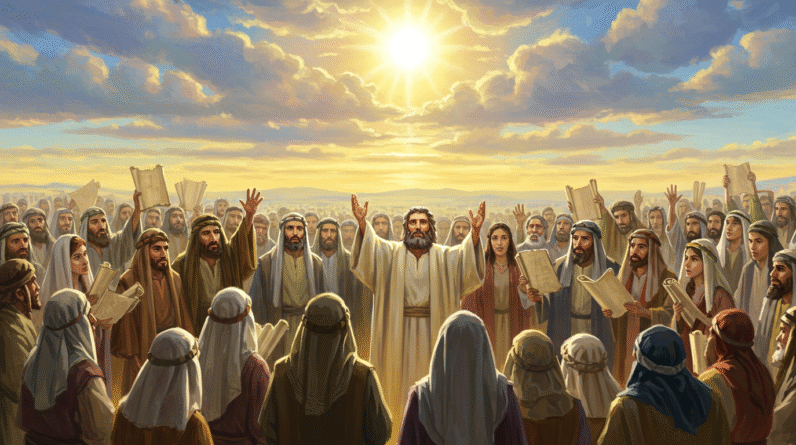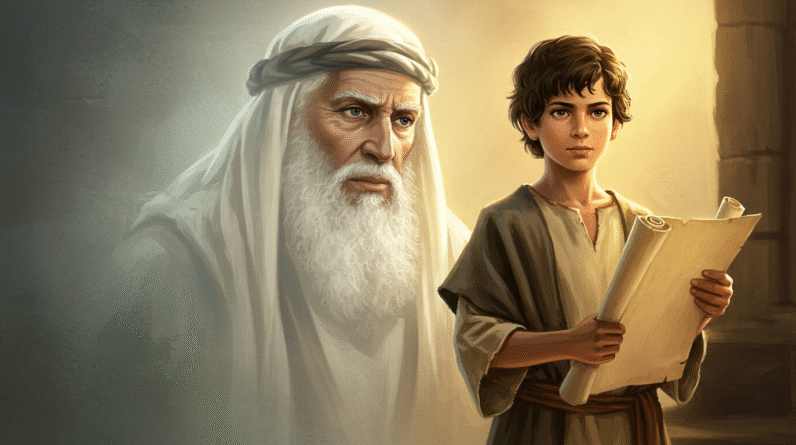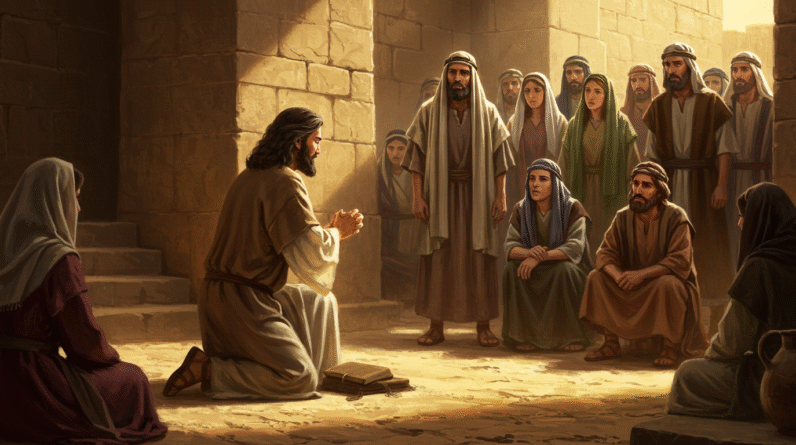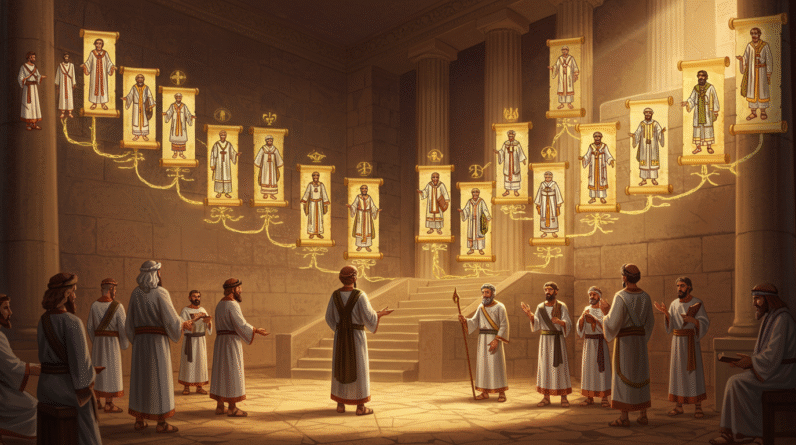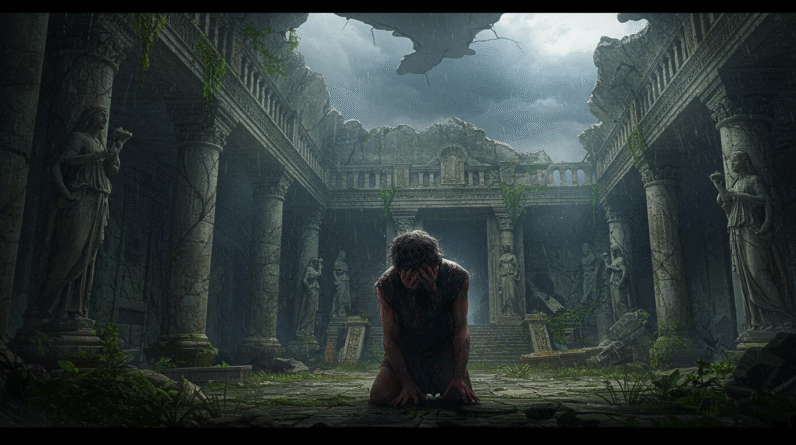Uncover the mystery of Melchizedek in biblical history. Explore his profound role, timeless lessons, and connections to spiritual leadership in this intriguing post.
Melchizedek: The Enigmatic Priest of Righteousness
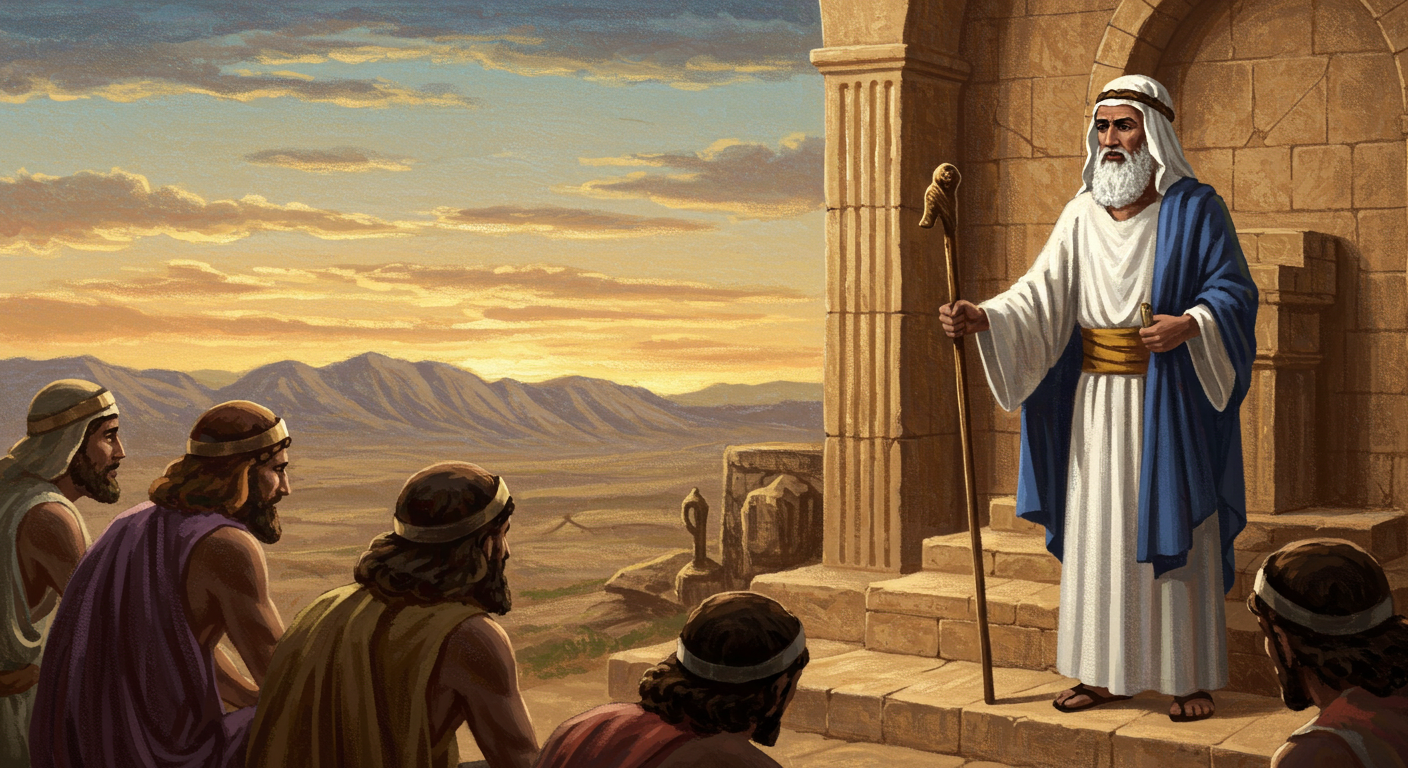
Introduction
In the intricate tapestry of biblical history, few figures are as intriguing and mysterious as Melchizedek. With a presence that is both brief and impactful, Melchizedek appears as a beacon of holiness and righteousness, offering a rich ground for reflection and study. His story, though sparse in details, is filled with deep spiritual significance and a compelling narrative that beckons us to explore further. Why does this enigmatic priest matter so much in the biblical narrative? As we delve into his story, you’ll discover the profound implications of his role and how his legacy resonates even today.
Who Was Melchizedek?
Melchizedek stands out as a unique and captivating character in the Bible. Referred to as the “king of Salem” and “priest of God Most High,” his dual role as both king and priest sets him apart from other biblical figures. According to the Book of Genesis 14:18, Melchizedek blesses Abram (later Abraham) after Abram’s victory in battle, introducing him as a figure of considerable spiritual authority. Despite the limited details on his background, his lineage, or the scope of his priesthood, Melchizedek remains a figure of intrigue due to his sudden appearance and his profound impact.
The meaning of his name, often interpreted as “king of righteousness,” aligns with his portrayal as a paragon of holiness and justice. While his parent’s lineage is notably absent from the biblical text, this absence only adds to the mystery surrounding him, amplifying his legendary status. Some biblical scholars suggest that his city, Salem, is an early name for Jerusalem, further tying him to significant biblical locations.
Key Moments in Melchizedek’s Life
Although Melchizedek’s appearance in Scripture is brief, it is laden with significance. His encounter with Abram marks a pivotal moment in the biblical narrative. Upon meeting Abram, Melchizedek presents bread and wine and blesses him, acknowledging God’s hand in Abram’s triumph. This act of blessing is far from trivial; it signifies a transfer of spiritual power and divine favor.
This meeting occurs in a period when God establishes foundational relationships and covenants with humanity. Melchizedek’s blessing to Abram is a key event that highlights the role of divine intervention and blessing in the success of God’s people. It also demonstrates the notion of a priesthood outside of the future established Levitical line, introducing the idea of a universal and pre-Levitical priesthood.
In the historical context, Melchizedek’s presentation of bread and wine to Abram offers a notable foreshadowing of significant New Testament themes, particularly the Last Supper, where Jesus uses bread and wine in a similar symbolic manner.
Lessons We Can Learn from Melchizedek
Melchizedek’s story, though short, is ripe with lessons on faith, leadership, and the recognition of divine authority. His life encourages us to ponder the importance of righteousness and the pursuit of justice in our everyday lives. As someone who bore the dual responsibility of king and priest, Melchizedek exemplifies balanced leadership that embraces both civic duties and spiritual integrity.
From Melchizedek, we learn the value of acknowledging blessings and the source from which they come. His blessing to Abram is a reminder for us to recognize God’s hand in our successes and to use our positions to facilitate blessing and prosperity for others. Moreover, his story demonstrates the idea of a priesthood not limited to specific rituals or lineage, suggesting that divine service transcends established boundaries.
In modern Christian life, Melchizedek’s example encourages you to combine your worldly responsibilities with spiritual devotion, fostering a harmonious balance.
Biblical References & Context
Melchizedek is primarily mentioned in three critical places in the Bible. The first, as mentioned, is Genesis 14:18-20, where he meets Abram.
He is then referenced in Psalm 110:4, where David writes, “The Lord has sworn and will not change his mind: ‘You are a priest forever, in the order of Melchizedek.'” This reference elevates Melchizedek from just a historical figure to an archetype of everlasting priesthood.
The third significant mention is in the New Testament, particularly in the Book of Hebrews 7:1-3. Here, the author draws explicit parallels between Melchizedek and Jesus Christ, emphasizing the eternal and divine nature of Christ’s priesthood compared to Melchizedek’s.
Melchizedek in the Bigger Picture
In the grand narrative of God’s plan in the Old Testament, Melchizedek serves as a precursor and a symbolic archetype for Jesus Christ. His mysterious origin and undefined priesthood allow him to symbolize a different kind of messianic priesthood that is everlasting and divinely appointed, which is later fulfilled in the New Testament by Jesus.
While the Levitical priesthood serves under the old covenant with its rituals and traditions, Melchizedek’s priesthood represents a higher, more eternal order. This aligns with the message in Hebrews, which suggests that Jesus, like Melchizedek, serves as a priest eternally, not by descent but by divine appointment.
Through Melchizedek, we see a foreshadowing of a new covenant—one marked not just by law, but by grace and eternal priesthood. His role bridges the Old and New Testaments, linking God’s plan for Israel with the broader promise of salvation through Jesus.
Final Thoughts
Melchizedek may only appear in a few verses, but his influence is monumental. He stands as a testament to God’s intricate and grand design that predates the law of Moses and sets the stage for the coming of Christ. Reflecting on Melchizedek’s role encourages you to appreciate the seamless connection between the Old and New Testaments and the unfolding of God’s plan for humanity.
His story invites readers not only to ponder the divine mysteries of biblical history but also to integrate the lessons of righteousness, leadership, and divine acknowledgment into their lives. Whether in leadership, personal growth, or spiritual activities, Melchizedek’s legacy offers timeless truths for those eager to look beyond the surface.
Acknowledgment: All Bible verses referenced in this article were accessed via Bible Gateway (or Bible Hub).


